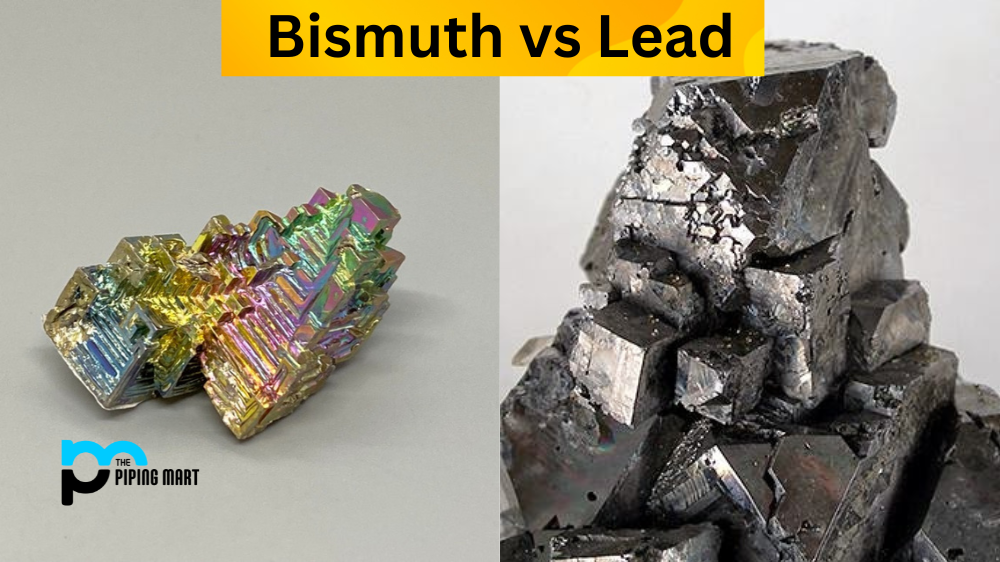In today’s world, we are surrounded by different kinds of metals. Whether in jewellery or household items, each metal has its importance. However, not all metals are safe for our health. Some can have adverse effects and cause health hazards. This blog post will explore the differences between two commonly used metals – bismuth and lead. We will be looking at which one is safer for human use.
Difference Between Bismuth and Lead
Composition
Bismuth and lead are metals that are very different in terms of their chemical composition. Bismuth is a chemical element that falls under the Group 15 elements in the Periodic Table, while lead falls under Group 14. Bismuth is known to be relatively less toxic than lead, which is highly toxic and can lead to serious health issues if ingested.
Properties
Bismuth and lead both have unique physical and chemical properties. Bismuth is a hard, brittle, and pinkish-silver metal with a low melting point. When heated, it produces a beautiful oxide layer on its surface. Lead, on the other hand, is a soft, heavy, and dull grey metal that has a high melting point. Lead is known for its high density and is often used in construction materials.
Uses
Bismuth and lead have very different uses. Bismuth is often used in cosmetics and pharmaceuticals and as a low-toxicity alternative to lead in soldering and plumbing. Additionally, it is commonly used in alloys with tin, cadmium, and lead. Lead is mostly used in construction materials, lead-acid batteries, and bullets. However, it is worth noting that lead was also used in household paint and gasoline in the past, which has led to lead poisoning in many individuals.
Health Risks
Bismuth is generally considered to be much safer for human use than lead. Lead exposure can lead to serious health issues, including brain damage, kidney damage, and anaemia. On the other hand, bismuth has a low toxicity level and is considered safe for human use. However, it is still important to be cautious while using bismuth-based products as they can cause mild gastrointestinal issues in some individuals.
Sustainability
Regarding sustainability, bismuth is a much better option than lead. Lead is a toxic metal that harms both people and the environment. It is a known cause of severe air, water, and soil pollution. On the other hand, bismuth is relatively non-toxic and has a low environmental impact. It is a sustainable option for a range of applications.
Conclusion
After comparing bismuth and lead, it’s clear that bismuth is a safer and more sustainable option. While lead might be useful for certain applications, it is a toxic metal with serious health and environmental risks. Conversely, bismuth has low toxicity, unique properties, and sustainability. Overall, it’s important to be mindful of the types of metals we surround ourselves with and prioritize those that are safe and have a low environmental impact.

Meet Bhavesh, a seasoned blogger with a wealth of knowledge and experience. From metal products manufacturing to retail, Bhavesh has a diverse background in various industries and is dedicated to sharing his insights and expertise with readers.




